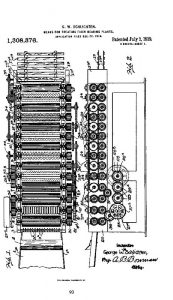The political ecology of today’s world food system is continuously being shaped by countless influential factors. The world food system is in an utter state of imbalance in terms of waste and environmental degradation. The foundation from which these issues arise can be traced back to governmental and social dimensions and or decisions that took place in the recent past. One such decision was made during the 1930s in the United States through a series of governmental Acts used to illegalize hemp. The abandonment of hemp farming greatly influenced the prosperity of other crops and industries in the United States and around the world. Only now is the U.S. beginning the re-industrialization of hemp (having had to rely on international exports in the past), though it is still federally illegal, numerous states have made progress in proving its worth as a revolutionary crop. “The “game changing” Act went into effect on January 1, 2017. Laws governing industrial hemp have now evolved in a total of 33 states…” which will allow the US to better help the progress of old and new global initiatives surrounding the crop. (Industrial Hemp Research Foundation.)

The hemp plant is part of a global solution, addressing soil degradation, food shortages, medical ailments, energy efficiency and product manufacturing. Hemp is morphing into what looks like a trillion-dollar industry because of its unique characteristics and versatility. Hemp has already proven its ability to be used in fabricating vast arrays of goods and the industry is demanding cleaner alternatives; hemp is that alternative. The benefits of farming hemp are fundamental to understanding the desire for farmers to grow it. The chemical composition of the hemp plant and its numerous varieties make it an extremely dynamic crop, capable of extending into not just the agricultural side of the economy but the energy, manufacturing and medicinal sides as well.
